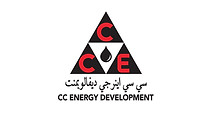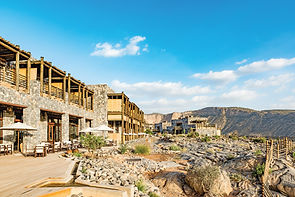
Exploration to a sustainable future
Walter Simpson, Managing Director, CC Energy Development
What is the history and corporate strategy of CCED?
CC (Consolidated Contractors) Energy Development (CCED) is an independent international oil and gas operator with a ‘think globally but act locally’ mindset. We explore for and produce oil and natural gas in Oman. CCED was established in 2007 and started oil and gas production in 2010. By 2019, production reached 45,000 barrels of oil per day (bopd), with the 100 millionth barrel of oil produced in July 2020.
While exploring for and producing oil and gas is the core business, CCED is committed to supporting local communities and developing national talent. To this end, we adopt a sustainable and technology-supported strategic approach to our operations. Through innovation, training programmes and investing in the communities in which we operate, CCED facilitates local capacity-building to deliver sustainable benefits for future generations. We are a diverse, ethical and responsible organisation and understand people are key to our success, whilst ensuring the communities in which we operate will benefit.
Where is CCED active in Oman?
CCED operates Blocks 3 and 4 in eastern central Oman. Block 3, located in Afar, comprises an area of 5,911km², while Block 4, located in Ghunaim, comprises an area of 23,212km². The main producing fields in Block 3 are Farha South, Ulfa and Samha, while the main producing fields in Block 4 are Saiwan and Shahd.
Who owns CCED and who are the partners you work with?
CCED is a privately owned independent exploration and production company. Our main partners in Oman are Tethys Oil and Mitsui E&P Middle East.
What is your current rate of production and your expectation of future production?
Current production is down on our peak rates as we undertake an extensive exploration programme to test the full potential of the blocks. We have a 3D seismic acquisition programme underway and by the end of 2024, we will have around 17,000km2 of high quality 3D seismic data processed to state-of-the-art standards over the entire prospective portions of both blocks. In addition, we have four drilling rigs working in the blocks on development, appraisal and exploration activities.
Could you describe any major corporate developments over the past year?
Throughout 2022, we maintained our uncompromising attitude towards health and safety. We launched our Safety Leadership Programme to enhance the skills our team members need to promote a positive workplace culture as well as driving safe delivery of our work programmes.
We supported the training and development of many of our team members so they can reach their full potential. Our hiring of national talent continues with 10 new graduates, four of whom were women, of which three are working in the field. Our positive impact on society has continued to grow, partly thanks to partnerships with several entities to make a sustainable and measurable difference in the lives of others.
Furthermore, our transformation to become a low-cost, low-environmental impact operator required us to pursue sustainable low-carbon processes. With the help of our Gas-to-Power project, we are ready to make significant reductions in our greenhouse gas emissions and reach zero routine gas flaring by 2027.
How is CCED taking action to reduce its carbon footprint?
Our success is dependent on being a low-cost producer, with a low environmental footprint valued by the communities in which we work, and this is completely aligned with Oman Vision 2040, of which carbon neutrality and fighting climate change are important components. We have a three-pronged approach to our environmental stewardship: greenhouse gas emissions reduction, water management and waste management.
In 2023, a major step to greenhouse gas emissions and zero gas flaring is the execution of our gas-to-power project. This will use our associated gas efficiently by generating electricity to power our field production assets, such as wells and pumps. This will allow us to replace most of the diesel power generation which is currently used for those purposes, impacting positively not only on our carbon footprint but also our operating efficiency and costs.
On the water management side: we are stopping the routine use of ponds, and all produced water will be disposed of either through injection, for pressure maintenance, in our reservoirs, or by disposal in safe reservoirs where we no longer need to produce hydrocarbons.
Given the nature of our fields, we have high levels of water production and we are looking at technology to help us reduce these levels – 2023 will see a trial of a new polymer technology aimed to enable this.
What proportion of your workforce is Omani?
Our Omanisation rate is currently around 92%, with more than 60% of our team members working in the field. Nearly 70% of our senior leadership consists of Omanis – more than double compared to a few years ago.
However, we are not aiming for 100% Omanisation as we see tremendous benefits from the small number of highly skilled expatriates who bring experience in-house, aiding the development, coaching and mentoring of nationals. Put simply we see a diverse workforce as an essential part of good technical and business decisions.
How are you helping develop the skills and talents of your local workforce?
We continue to nurture the next generation of energy sector qualified experts through a number of on-the-job training programmes to significantly accelerate their skills development. For example, 95% of our maintenance technicians and production team have acquired the Advanced Diploma in Oil & Gas Operations from City & Guilds in the UK. We also work directly with SMEs by providing guidance and assistance in bid preparation and strategic planning, helping them improve their competitive advantage.
Could you describe CCED’s approach to Corporate Social Responsibility?
CCED considers Corporate Social Responsibility (CSR) a vital tool for harnessing the potential of local communities, while focusing on initiatives directly benefiting the concession areas where we operate. Our purpose-built CSR strategy covers a range of themes including education, social, health and the environment. Through them, we are committed to achieving sustainable socio-economic development for Oman and its people.
How would you sum up CCED’s strategy for growth?
As the economy shows a strong recovery, we continue to operate full steam ahead. As well as adding resources to accelerate the maturation of our reserve base, we are continuing to advance our exploration programme, with additional 3D seismic being acquired as well as a substantial exploration and appraisal drilling programme. Our roadmap to zero flaring and GHG emissions reduction will take a major step forward with the Gas-to-Power project reaching Final Investment Decision (FID) and beginning execution. Moreover, maturing our reserve base while reducing our emissions will be key pillars of our future success. We will continue to harness opportunities to develop our business, to work to enrich our local communities and to contribute to the wider socio-economic development of the country.






